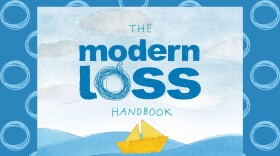David Gergen - adviser to Presidents Nixon, Ford, Reagan and Clinton, senior political analyst for CNN, and founder of the Center for Public Leadership at Harvard’s Kennedy School joins us to discuss his new book "Hearts Touched With Fire: How Great Leaders Are Made."
In the book, Gergen presents an inspiring and practical guide for emerging young leaders as well as seasoned change makers, drawing on vivid examples from personal experience, history and recent headlines to shine a light on pathways forward. To uncover the fundamental elements of effective leadership, Gergen traces the journeys of iconic leaders past and present, from pathbreakers like Ruth Bader Ginsburg, John Lewis, John McCain, and Harvey Milk to historic icons like Lincoln, John F. Kennedy, Winston Churchill, and Eleanor and Franklin Roosevelt, to contemporary game changers like Greta Thunberg, the Parkland students, and the Black Lives Matter movement.
David Gergen has been a leader in the public arena for more than half a century.







